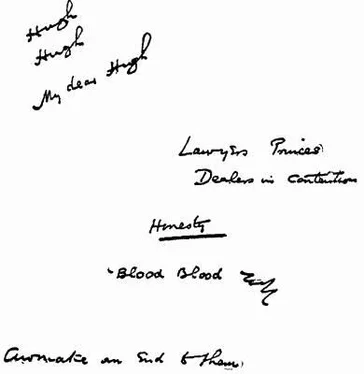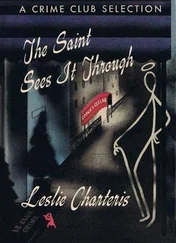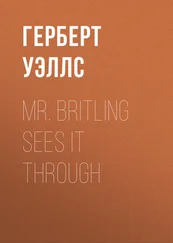Herbert Wells - Mr. Britling Sees It Through
Здесь есть возможность читать онлайн «Herbert Wells - Mr. Britling Sees It Through» весь текст электронной книги совершенно бесплатно (целиком полную версию без сокращений). В некоторых случаях можно слушать аудио, скачать через торрент в формате fb2 и присутствует краткое содержание. Жанр: Классическая проза, на английском языке. Описание произведения, (предисловие) а так же отзывы посетителей доступны на портале библиотеки ЛибКат.
- Название:Mr. Britling Sees It Through
- Автор:
- Жанр:
- Год:неизвестен
- ISBN:нет данных
- Рейтинг книги:4 / 5. Голосов: 1
-
Избранное:Добавить в избранное
- Отзывы:
-
Ваша оценка:
- 80
- 1
- 2
- 3
- 4
- 5
Mr. Britling Sees It Through: краткое содержание, описание и аннотация
Предлагаем к чтению аннотацию, описание, краткое содержание или предисловие (зависит от того, что написал сам автор книги «Mr. Britling Sees It Through»). Если вы не нашли необходимую информацию о книге — напишите в комментариях, мы постараемся отыскать её.
Mr. Britling Sees It Through — читать онлайн бесплатно полную книгу (весь текст) целиком
Ниже представлен текст книги, разбитый по страницам. Система сохранения места последней прочитанной страницы, позволяет с удобством читать онлайн бесплатно книгу «Mr. Britling Sees It Through», без необходимости каждый раз заново искать на чём Вы остановились. Поставьте закладку, и сможете в любой момент перейти на страницу, на которой закончили чтение.
Интервал:
Закладка:
The spirit and honour and drama had gone out of this war.
Our only hope now was exhaustion. Our only strategy was to barter blood for blood—trusting that our tank would prove the deeper....
While into this tank stepped Hugh, young and smiling....
The war became a nightmare vision....
§ 9
In the morning Mr. Britling's face was white from his overnight brain storm, and Hugh's was fresh from wholesome sleep. They walked about the lawn, and Mr. Britling talked hopefully of the general outlook until it was time for them to start to the station....
The little old station-master grasped the situation at once, and presided over their last hand-clasp.
"Good luck, Hugh!" cried Mr. Britling.
"Good luck!" cried the little old station-master.
"It's not easy a-parting," he said to Mr. Britling as the train slipped down the line. "There's been many a parting hea' since this here old war began. Many. And some as won't come back again neether."
§ 10
For some days Mr. Britling could think of nothing but Hugh, and always with a dull pain at his heart. He felt as he had felt long ago while he had waited downstairs and Hugh upstairs had been under the knife of a surgeon. But this time the operation went on and still went on. At the worst his boy had but one chance in five of death or serious injury, but for a time he could think of nothing but that one chance. He felt it pressing upon his mind, pressing him down....
Then instead of breaking under that pressure, he was released by the trick of the sanguine temperament. His mind turned over, abruptly, to the four chances out of five. It was like a dislocated joint slipping back into place. It was as sudden as that. He found he had adapted himself to the prospect of Hugh in mortal danger. It had become a fact established, a usual thing. He could bear with it and go about his affairs.
He went up to London, and met other men at the club in the same emotional predicament. He realised that it was neither very wonderful nor exceptionally tragic now to have a son at the front.
"My boy is in Gallipoli," said one. "It's tough work there."
"My lad's in Flanders," said Mr. Britling. "Nothing would satisfy him but the front. He's three months short of eighteen. He misstated his age."
And they went on to talk newspaper just as if the world was where it had always been.
But until a post card came from Hugh Mr. Britling watched the postman like a lovesick girl.
Hugh wrote more frequently than his father had dared to hope, pencilled letters for the most part. It was as if he was beginning to feel an inherited need for talk, and was a little at a loss for a sympathetic ear. Park, his schoolmate, who had enlisted with him, wasn't, it seemed, a theoriser. "Park becomes a martinet," Hugh wrote. "Also he is a sergeant now, and this makes rather a gulf between us." Mr. Britling had the greatest difficulty in writing back. There were many grave deep things he wanted to say, and never did. Instead he gave elaborate details of the small affairs of the Dower House. Once or twice, with a half-unconscious imitation of his boy's style, he took a shot at the theological and philosophical hares that Hugh had started. But the exemplary letters that he composed of nights from a Father to a Son at War were never written down. It was just as well, for there are many things of that sort that are good to think and bad to say....
Hugh was not very explicit about his position or daily duties. What he wrote now had to pass through the hands of a Censor, and any sort of definite information might cause the suppression of his letter. Mr. Britling conceived him for the most part as quartered some way behind the front, but in a flat, desolated country and within hearing of great guns. He assisted his imagination with the illustrated papers. Sometimes he put him farther back into pleasant old towns after the fashion of Beauvais, and imagined loitering groups in the front of cafés; sometimes he filled in the obvious suggestions of the phrase that all the Pas de Calais was now one vast British camp. Then he crowded the picture with tethered horses and tents and grey-painted wagons, and Hugh in the foreground—-bare-armed, with a bucket....
Hugh's letters divided themselves pretty fairly between two main topics; the first was the interest of the art of war, the second the reaction against warfare. "After one has got over the emotion of it," he wrote, "and when one's mind has just accepted and forgotten (as it does) the horrors and waste of it all, then I begin to perceive that war is absolutely the best game in the world. That is the real strength of war, I submit. Not as you put it in that early pamphlet of yours; ambition, cruelty, and all those things. Those things give an excuse for war, they rush timid and base people into war, but the essential matter is the hold of the thing itself upon an active imagination. It's such a big game. Instead of being fenced into a field and tied down to one set of tools as you are in almost every other game, you have all the world to play and you may use whatever you can use. You can use every scrap of imagination and invention that is in you. And it's wonderful.... But real soldiers aren't cruel. And war isn't cruel in its essence. Only in its consequences. Over here one gets hold of scraps of talk that light up things. Most of the barbarities were done—it is quite clear—by an excited civilian sort of men, men in a kind of inflamed state. The great part of the German army in the early stage of the war was really an army of demented civilians. Trained civilians no doubt, but civilians in soul. They were nice orderly clean law-abiding men suddenly torn up by the roots and flung into quite shocking conditions. They felt they were rushing at death, and that decency was at an end. They thought every Belgian had a gun behind the hedge and a knife in his trouser leg. They saw villages burning and dead people, and men smashed to bits. They lived in a kind of nightmare. They didn't know what they were doing. They did horrible things just as one does them sometimes in dreams...."
He flung out his conclusion with just his mother's leaping consecutiveness. "Conscript soldiers are the ruin of war.... Half the Germans and a lot of the French ought never to have been brought within ten miles of a battlefield.
"What makes all this so plain are the diaries the French and English have been finding on the dead. You know at the early state of the war every German soldier was expected to keep a diary. He was ordered to do it. The idea was to keep him interested in the war. Consequently, from the dead and wounded our people have got thousands.... It helps one to realise that the Germans aren't really soldiers at all. Not as our men are. They are obedient, law-abiding, intelligent people, who have been shoved into this. They have to see the war as something romantic and melodramatic, or as something moral, or as tragic fate. They have to bellow songs about 'Deutschland,' or drag in 'Gott.' They don't take to the game as our men take to the game....
"I confess I'm taking to the game. I wish at times I had gone into the O.T.C. with Teddy, and got a better hold of it. I was too high-browed about this war business. I dream now of getting a commission....
"That diary-hunting strategy is just the sort of thing that makes this war intellectually fascinating. Everything is being thought out and then tried over that can possibly make victory. The Germans go in for psychology much more than we do, just as they go in for war more than we do, but they don't seem to be really clever about it. So they set out to make all their men understand the war, while our chaps are singing 'Tipperary.' But what the men put down aren't the beautiful things they ought to put down; most of them shove down lists of their meals, some of the diaries are all just lists of things eaten, and a lot of them have written the most damning stuff about outrages and looting. Which the French are translating and publishing. The Germans would give anything now to get back these silly diaries. And now they have made an order that no one shall go into battle with any written papers at all.... Our people got so keen on documenting and the value of chance writings that one of the principal things to do after a German attack had failed had been to hook in the documentary dead, and find out what they had on them.... It's a curious sport, this body fishing. You have a sort of triple hook on a rope, and you throw it and drag. They do the same. The other day one body near Hooghe was hooked by both sides, and they had a tug-of-war. With a sharpshooter or so cutting in whenever our men got too excited. Several men were hit. The Irish—it was an Irish regiment—got him—or at least they got the better part of him....
Читать дальшеИнтервал:
Закладка:
Похожие книги на «Mr. Britling Sees It Through»
Представляем Вашему вниманию похожие книги на «Mr. Britling Sees It Through» списком для выбора. Мы отобрали схожую по названию и смыслу литературу в надежде предоставить читателям больше вариантов отыскать новые, интересные, ещё непрочитанные произведения.
Обсуждение, отзывы о книге «Mr. Britling Sees It Through» и просто собственные мнения читателей. Оставьте ваши комментарии, напишите, что Вы думаете о произведении, его смысле или главных героях. Укажите что конкретно понравилось, а что нет, и почему Вы так считаете.






